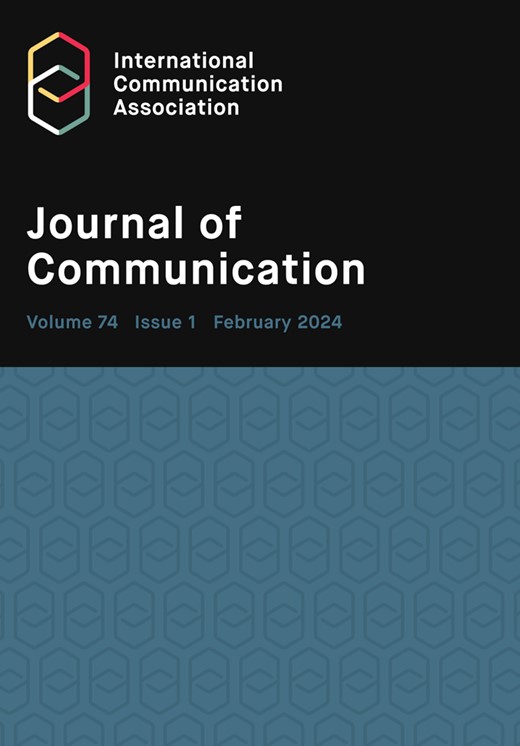新闻媒体中的性别差异和相似性对政治候选人评价的影响:一项元分析
IF 5.5
1区 文学
Q1 COMMUNICATION
引用次数: 2
摘要
不同类型的媒体报道是如何影响选民对男女政治家的评价的?从理论上回顾了50项实验研究,从统计上综合了来自23,000多名参与者的671项评估结果,这一荟萃分析综述表明,媒体诱导的选民评估中的性别偏见是有条件的,而不是普遍的。我们的研究结果表明,选民对大多数关于女性和男性候选人的媒体信息的反应相似。当发现性别差异的媒体效应时,例如,基于政治家的特征、外表或家庭报道,这对女性候选人来说是最有害的,因为它重申了性别刻板印象,降低了她们的生存能力评级和投票偏好。这项研究揭示了媒体驱动的选民偏见的条件性质,有助于更好地理解性别刻板印象的中介如何维持女性在政治中的代表性不足。本文章由计算机程序翻译,如有差异,请以英文原文为准。
Gender differences and similarities in news media effects on political candidate evaluations: a meta-analysis
How do different types of media coverage shape—and potentially bias—voter evaluations of women and men politicians? Theoretically reviewing 50 experimental studies and statistically synthesizing 671 evaluation outcomes from more than 23,000 participants, this meta-analytic review shows that gender bias in media-induced voter evaluations is conditional rather than universal. Our findings suggest that voters respond similarly to most media messages about women and men candidates. When gender-differentiated media effects are found, for instance, based on trait, appearance, or family coverage of politicians, this is mostly harmful for women candidates as it reaffirms gender stereotypical beliefs and lowers their viability ratings and vote preferences. Shedding light on the conditional nature of media-driven voter bias, this study adds to a better understanding of how the mediation of gender stereotypes sustains the underrepresentation of women in politics.
求助全文
通过发布文献求助,成功后即可免费获取论文全文。
去求助
来源期刊

Journal of Communication
COMMUNICATION-
CiteScore
11.60
自引率
5.10%
发文量
41
期刊介绍:
The Journal of Communication, the flagship journal of the International Communication Association, is a vital publication for communication specialists and policymakers alike. Focusing on communication research, practice, policy, and theory, it delivers the latest and most significant findings in communication studies. The journal also includes an extensive book review section and symposia of selected studies on current issues. JoC publishes top-quality scholarship on all aspects of communication, with a particular interest in research that transcends disciplinary and sub-field boundaries.
 求助内容:
求助内容: 应助结果提醒方式:
应助结果提醒方式:


